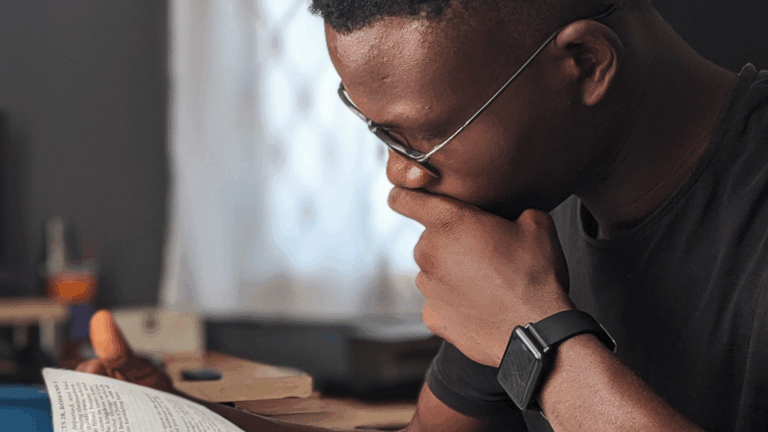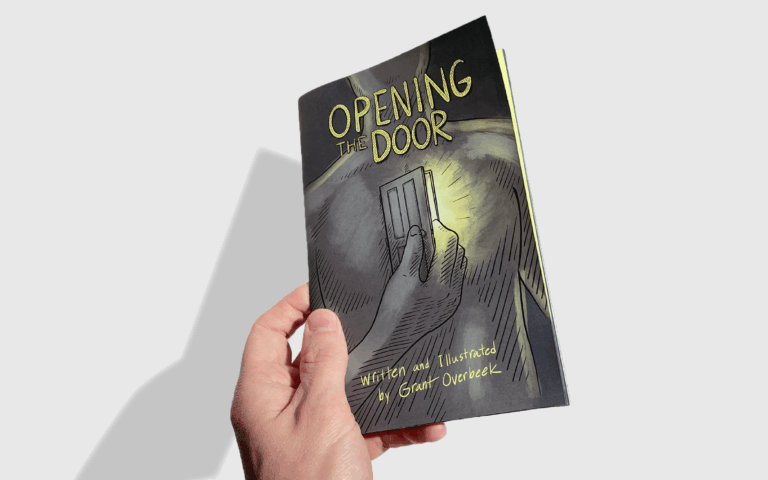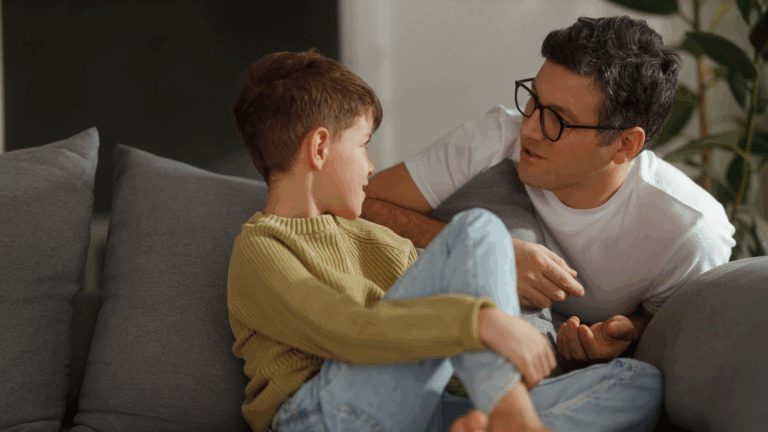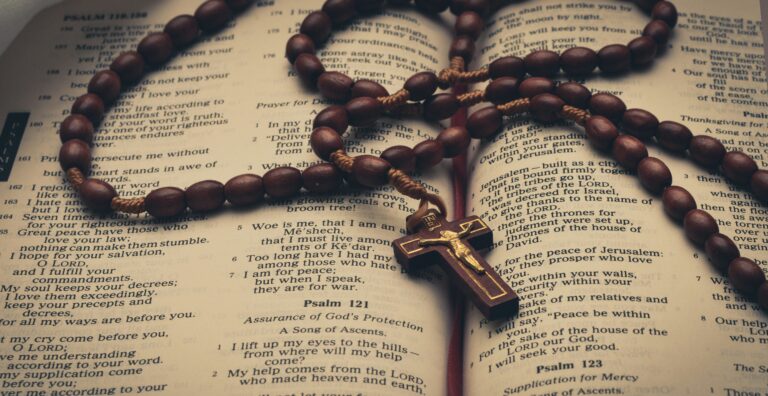This article was written by Rebecca Hutchinson, a gay woman in a mixed-orientation marriage. Learn more about “God’s Heart for His Daughters” now available in Equip’s Virtual Course.
I spent years wondering why I was attracted to women and praying for God to make me straight. I grew up in a Christian family and culturally Christian community that taught sexual orientation change as well as purity culture. I thought I was broken and unwanted by God because my orientation never changed despite years of prayer and tears. Purity culture only amplified my shame. Feeling unwanted led to anger and bitterness toward God, doubt towards the church, and lament for my sexual orientation. I wondered, Is God good and loving?
Though I dated and planned to marry a woman at one point, I never left the Christian faith. Through much prayer, I was eventually convinced of a historic sexual ethic, and I decided to break things off with my girlfriend because I wanted what was truly best for her and myself. I spent a lot of time lamenting the loss of that relationship, and I know that lament helped me heal, even though I felt like God was denying me the deepest desires of my heart. To lean into God’s goodness, each day I practiced noticing where God was at work in my life for my good. Sometimes it was simple laughter with friends or noticing the beauty of nature. Over time, seeing God’s goodness in my life brought relief from my anger. Sometimes I still doubt the Church and doubt myself, but I trust that God will bring goodness, even if it isn’t on this side of heaven. That trust has led me to get a Master’s degree in Ministry and intern with Equip so I can help LGB women and others in the LGBT+ community find belonging in the Church while living into God’s good plans for our lives.
Balancing faith and sexuality
As Christians, it can be difficult to admit that we have feelings of doubt, anger, and lament, especially when they are directed at ourselves, the Church, or even God. However, for LGB Christian women these feelings are very often, if not always, a part of balancing our faith and sexuality. For us LGB women, these feelings can come and go throughout our lifetimes as we constantly work to live and thrive according to God’s wisdom. These feelings are not bad; they are a healthy part of growing and healing. Holding a safe place to process these emotions and showing that others can connect to them through some other situation goes a long way in fostering community. So what could these feelings look like in the lives of LGB women, and how can the Church help them journey well through those emotions?
Lament
Throughout my own journey, I have learned that lament often goes hand-in-hand with the tension of figuring out our faith and sexuality. LGB women may lament knowing that God does not bless same-sex romantic relationships, even while longing to be in one. It can be heartbreaking to know that God says “no” to something that feels so natural. Even if we trust God’s wisdom–that what we desire is not actually good for us–we still feel the weight of that “no.” We can also lament enduring a brokenness that will not be healed this side of heaven. Orientation change is unlikely for most individuals, and LGB women can have a difficult time carrying this knowledge with them. There is also lament for lost dreams of a same-sex, Disney-channel-fairytale family. This is true for both LGB women in mixed-orientation marriages and those who are celibate; either way, marriage to a woman is a dream that cannot be reality. The lament LGB women experience is different from the lament of a celibate straight person; for LGB women, there is no hope of a relationship with someone of the same sex that would follow a historic sexual ethic. Finally, there is lament for community. Most programming in our churches is nuclear family-centered. Where does that leave single LBG women?
Doubt
LGB women also experience doubt in many areas related to faith. The first is doubt in God, which can show up as questions: If God is love, why can’t I love and be in a relationship with another woman? Yes, God is love, but God knows what’s best for us. He has warned us through the Scriptures and Christians throughout history that God has better things to offer us than same-sex romance and gay sex.
If God gives us the desires of our hearts, why can’t I have this desire fulfilled? We live in a world affected by the Fall. Some of the desires in our hearts are broken, even when they feel natural. Regardless of our broken desires, God has good plans for our lives, even if those plans are not what we initially want or expect.
If God is good, why did He make me gay? The consensus of scientists is that a combination of nature and nurture contributes to the development of everyone’s sexual orientation. At the same time, we know that God did not intend for anyone to be broken, including developing same-sex attractions. I don’t think God intentionally made us with the parts of our being that are affected by the Fall, but I also don’t believe that our attractions are any less a part of who we are as persons. However, even if God made us gay that does not change the nature of God’s goodness. Whether or not God made gay people gay doesn’t change how He can move in our lives. Doubts in God can show up in many other ways and may not always be easy to answer, but just as Jesus showed grace to Thomas, God also shows grace to us in our doubts as LGB women.
We can also doubt ourselves as LGB women. When questioning our sexuality, LGB women can have increased self-doubt and shame. However, encouragement, conversations, and community can decrease doubt and shame. Everyone needs close, same-sex friendships, including us LGB women. Plus, those friendships can push back on the internal homophobia LGB Christians often live with. LGB women are vulnerable to lies like Same-sex friendships are dangerous because I might develop a crush or People are afraid of being close to me or I am less valuable/unlovable because I am gay. Intimate, same-sex friendships challenge those lies. Friends who meet us where we are and are not afraid of us remind us that those inner thoughts aren’t true.
Finally, doubt can show up in our attitude towards the Church. We wonder, Will the Church be a community for me? Local church programming and activities are nuclear family-centered the majority of the time. This leaves LGB people, particularly those who are celibate, wondering whether their church will support them and be a community for them or if they will just be lonely. Highlighting gender stereotypes or choosing to offer only “girly” events can lead LGB women to feel left out if they do not easily fit into the usual stereotypes or if they are in doubt about how to relate to other women. This, along with shame, means we LGB women may not always fit well in community with other Christian women. We are afraid of developing crushes, often cannot relate to conversations about boyfriends/husbands and kids/families, and may not be into stereotypically feminine activities. Making church events less gender stereotypical will go a long way in making churches a safe place for LGB women to belong.
Anger
LGB women can also experience anger while working to balance our faith and sexuality. Sometimes, we’re angry at God. Thankfully, God is big enough to handle our doubt and our anger. God won’t bless same-sex romantic and sexual relationships, but He’s still good. We don’t understand why He created the world as He did, but we can still trust Him. God allowed me to develop same-sex attractions, though His intent at creation was never that anyone would experience broken sexuality, and God has promised to redeem my brokenness for my good and His glory. LGB women may also be angry and ask, “Why does God want me to be lonely?” In American culture, we look at dating/marriage relationships as the end all be all of connection. But this just isn’t the case. God does not want anyone to be alone or lonely. God is the fulfillment of all loneliness, but that can be hard to believe when we can’t see or touch Him. Trying to balance these truths is difficult, and LGB women may need to work through their anger at God.
LGB women may also be angry at the Church. We often feel discluded, we see the idolatry of romance and the nuclear family, we feel the effects of gender stereotypes, and we’re pushed toward a mixed-orientation marriage or orientation change. The Church can offer understanding for this anger rather than trying to dismiss it or justify their actions. Admitting wrongs and working towards reconciliation is a great step in ministering to LGB women walking through lament, doubt, and anger. We can do this as the Church by confessing these past sins of Christians toward gay people: teaching “pray the gay away” practices, promising opposite-sex marriage as an easy fix to same-sex attractions, dismissing bisexual women because they have some attraction to the opposite sex, and outsourcing care, especially to counselors who push conversion therapy–all of these practices did real damage to LGB people in the Church. We can be tempted to sweep past sins under the rug and not acknowledge them, but confessing them builds bridges and fosters healing. Finally, we can commit to taking practical steps to help LGB Christian women to thrive according to God’s wisdom. These steps can include listening without judgment, being intentional about including singles in ministry, offering community and safe places, confirming God’s love & wisdom, not pushing anyone into gender stereotypes, and learning how to serve LGBT+ people better. Doing these things and genuinely listening to LGB women can help the Church to bridge the gap in ministering to LGB women walking through lament, doubt, and anger.






Kathy Baldock
Or, maybe you can be honest about your natural orientation and be fully a Christ-follower simultaneously. Better education is needed in the church.
https://youtu.be/MBwajcvZtqw
Rebecca Hutchinson
Hi Kathy,
I am more honest about my orientation now than I have ever been in my life. I do see me being gay as a gift that has opened opportunities for God to work in and through my life that I would not have had if I were straight. I think there can be a beautiful balance of being honest and thankful about my sexual orientation while still upholding a historical sexual ethic.
Jody
Hey! Thanks for this. I wonder Rebecca if you have any other stuff on how you arrived to believing the traditional sexual ethic? I’m curious as to what your story is 🙂
Rebecca Hutchinson
Hi Jody,
I currently don’t have anything else in writing. Feel free to send me an email though and I can give you some more detail on that. My email is rebecca@equipyourcommunity.org